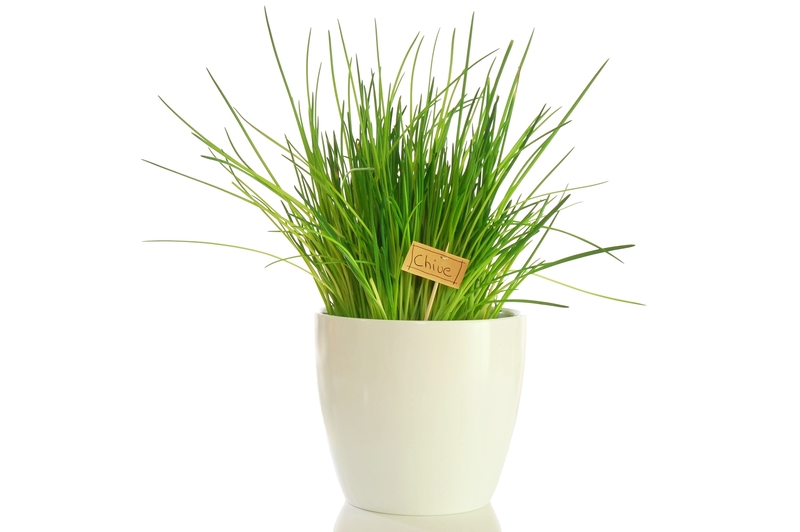Precision Hedge Trimming Techniques for Every Garden
Posted on 18/06/2025
Precision Hedge Trimming Techniques for Every Garden: The Complete Guide
Hedge trimming is both an art and a science--transforming unruly shrubs into bold statements of landscape beauty. Precision hedge trimming techniques not only keep your garden looking immaculate, but also nurture hedge health, encourage dense growth, and promote striking designs. Whether you're maintaining a neat border or crafting topiary masterpieces, mastering the art of precision hedge cutting is essential for every garden.

Why Precision Matters in Hedge Trimming
Precision hedge trimming goes beyond mere aesthetics. Carefully sculpted hedges act as living fences, define garden rooms, and provide privacy and protection from wind. Well-trimmed hedges:
- Encourage lush, dense growth
- Prevent disease by improving air circulation
- Maintain uniform shapes and heights
- Enhance visual appeal and value
In contrast, poor trimming can lead to sparse edges, bald patches, or even irreparably damaged hedgerows. That's why precision techniques are vital for every type of garden and all varieties of hedges.
Types of Hedges and Their Trimming Requirements
Not all hedges are created equal. Different species and styles demand unique precision trimming methods:
1. Formal Hedges
Examples: Boxwood, Privet, Yew. Formal hedges require sharp, geometric lines and regular clipping to maintain a defined shape. Precision is essential to preserve symmetry and uniformity throughout the garden.
2. Informal Hedges
Examples: Laurel, Hawthorn, Forsythia. These feature a more natural, loose appearance, but still benefit from strategic shaping. Here, selective cutting encourages natural density without harsh lines.
3. Flowering and Evergreen Hedges
Specifics: Timing is critical for many flowering and evergreen species. For instance, spring-flowering hedges should be trimmed after blooming to avoid sacrificing buds, while evergreens like holly prosper with gentle, regular shaping.
Essential Tools for Precision Hedge Trimming
No matter the scale of your garden, the right tools are vital for achieving seamless results:
- Hedge Shears: Ideal for manual cuts and fine detailing.
- Power Trimmers: Electric or gas-powered for larger, uniform surfaces.
- Pruning Saws: Tackles thick, woody branches within hedges.
- Topiary Clippers: For detailed shapes and intricate designs.
- String & Stakes: Guides for straight, even lines.
- Protective Gear: Gloves, goggles, and ear protection for safety.
Sharpen all blades regularly and clean tools after each use to prevent disease transmission.
Step-by-Step: Mastering Precision Hedge Trimming
Follow these detailed steps to ensure every hedge in your garden benefits from expert technique:
1. Plan Your Trimming Approach
- Assess your hedge's shape and health pre-trim
- Determine the desired form (straight, rounded, topiary)
- Choose the right season for your hedge species
2. Set Up Precise Guides
- For straight edges, run taut string along the hedge at the desired height
- Use stakes to mark corners or ends for squared-off designs
- For curves, mark outlines gently with garden hose or rope
3. Begin with the Sides
- Start at the bottom and move upward in smooth strokes
- Maintain a slight taper; the base should be wider than the top--this lets sunlight reach lower branches and prevents thinning out
- Always trim in the direction of new growth
4. Top Off with Precision
- Trim the top last, following your guide string for a perfect line
- For flat-topped hedges, keep blades parallel to the ground and make repeated, small cuts
- Check often from different angles for an even silhouette
5. Refine, Step Back, and Detail
- Step back frequently to observe your progress--precision is easier when viewed holistically
- Snip stray stems and perfect edges with hand shears for a crisp finish
- Remove all clippings to prevent fungal buildup and keep the garden tidy
Precision Techniques for Advanced Hedge Trimming
Creating Curves and Topiaries
If your botanical ambitions include curved forms or topiary sculptures, patience and a steady hand are your best friends:
- Mark out your design using templates, wire frames, or gentle chalk lines
- Work slowly, removing minimal growth with each pass--precision is vital to avoid irreversible mistakes
- Use topiary shears for intricate areas and finishing touches
Rejuvenation Trimming
Overgrown, woody hedges sometimes need hard pruning to restore health:
- Cut back severely in early spring, leaving 6-12 inches of growth
- Encourage spacing of cuts to promote even regrowth
- Be patient; recovery can take several seasons, but the result is a thick, revitalized hedge
Seasonal Timing for Pristine Results
Timing is everything when it comes to precision hedge trimming:
- Formal & Evergreen Hedges: Trim 2-3 times per year (late spring, midsummer, early autumn)
- Deciduous & Flowering Hedges: Prune immediately after flowering or in late winter before bud break
- Young Hedges: Lightly shape from the outset to develop dense, even growth
Avoid trimming during drought or extreme heat. Water hedges well before and after trimming to reduce stress.
Common Precision Hedge Trimming Problems and Solutions
- Browning Edges: Caused by blunt blades or overcutting--always use sharp tools and respect the growth rhythm
- Sparse Lower Growth: Ensure hedge bases are wider than tops, and thin dense areas to let light through
- Uneven Lines: Use guide strings, check often from multiple perspectives, and trim gradually
- Pest or Disease: Disinfect trimming equipment and remove diseased branches promptly
Eco-Friendly and Safe Practices
Gardeners passionate about the environment can apply precision techniques responsibly:
- Check for nesting birds before trimming, especially in spring and early summer
- Compost trimmings or use as mulch to return nutrients to the soil
- Choose manual shears for smaller hedges to reduce noise and emissions
Always wear protective gloves, goggles, and sturdy footwear while trimming.
Enhancing Creativity: Shaping Hedges for Distinct Gardens
The essence of precision trimming isn't just technical--it's creative! Topiary techniques and sculpting can turn basic shrubs into living sculptures. Whether you dream of globes, spirals, animals, or complex designs, start simple and practice often. Use wire forms or cardboard templates for guidance, and remember that patience yields perfection in hedge artistry.
Maintenance and Aftercare for Perfect Hedges
Even after meticulous trimming, ongoing hedge maintenance is crucial:
- Mulch bases to conserve moisture and block weeds
- Fertilize in spring to stimulate healthy growth
- Inspect regularly for pests or fungal issues
- Water deeply during dry spells, especially for young or recently trimmed hedges
By incorporating aftercare, your precisely trimmed hedges will retain their vitality and compact beauty all year round.

Frequently Asked Questions about Precision Hedge Trimming
How often should I trim my hedges?
Most hedges thrive with two to three trims per season. Fast-growing or formal species may require more frequent shaping for optimal precision.
What's the best shape for a healthy hedge?
A slight taper (wider at the base) is ideal--this ensures sunlight reaches lower branches, promoting dense leaf growth from top to bottom.
Can I use power trimmers for details?
Power trimmers excel for large, flat surfaces, but manual shears are best for tight corners, curves, and detailed shaping--especially in precision topiary work.
Conclusion: Precision Hedge Trimming Unlocks Garden Excellence
Perfectly sculpted hedges are a hallmark of a well-maintained landscape and reflect a gardener's eye for detail. By applying precision hedge trimming techniques--from careful planning, using the best tools, to advanced shaping and attentive aftercare--you can transform every garden into a sophisticated outdoor masterpiece.
Consistency, patience, and a creative touch turn simple hedge maintenance into living works of art.
Start your journey to impeccable hedges today. Discover the art and science of precision hedge trimming in your own garden and reap the rewards of lush greenery, defined spaces, and stunning curb appeal.
Latest Posts
The Garden Patch: A Frontline for Climate Combat
Creating a Blooming Garden alongside Your Dogs
Bring Imagination to Life with a Child-Centric Garden

